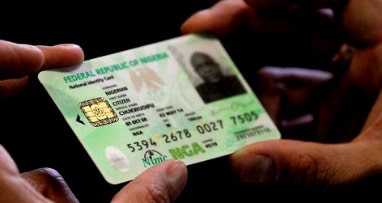Nigerian President Bola Tinubu and Bill Gates discussed the use of digital identity as a tool for improving tax collection by the government, in a meeting on the sidelines of a World Economic Forum (WEF) event in Saudi Arabia.
The former Microsoft CEO and current Gates Foundation co-chair has also been communicating with Coordinating Minister of the Economy and Minister of Finance Wale Edun on further digitization, reports The Whistler.
Gates suggested that the government could adopt tax collection through digital identity by adopting MOSIP, the modular open-source identity platform. Gates is a prominent proponent of MOSIP, and the Gates Foundation one of its primary financial backers.
“With MOSIP ID, there is potential application in all government payment programmes,” the publication quotes Gates as saying. “It helps with payment efficiency and bank accounts, and eventually, when everyone is using that, it makes tax collection easier. That benefit will take a few years. However, there will be more bank accounts, more financial inclusion, and effective government payment programmes.”
Nigeria has previously been reported to have some interest in integrating MOSIP with its digital ID system.
Gates also said that Nigeria is well-positioned with young talent to carry out its digital transformation.
Tinubu recounted how Lagos State used technology increase its tax base from 600 million Nigerian naira (approximately US$440,000) past N8 billion ($5.9 million) while he was its governor. President Tinubu also committed to consider MOSIP, and generally use technology to reduce corruption.
Nigeria has long had one of the lowest tax-to-GDP ratios in the world, and studies have suggested that as one of several levers to grow the economy through digitization. Other potential benefits related to digital ID include more widespread ownership of bank accounts and increased loan capacity. A recent article from the Gates Foundation on MOSIP highlights the latter benefits, noting the major increase in the ratio of Indians participating in that country’s formal economy since the introduction of Aadhaar.
MOSIP has also been declared an e-government champion among the 2024 World Summit on the Information Society (WSIS) prizes. WSIS is a United Nations summit for addressing IT issues, and its prizes showcase projects aligned with development priorities like the UN’s Sustainable Development Goals (SDGs).
Digital identity as a tax reform enabler
The Institute of Development Studies sees a trend in lower-income countries investing in technologies to make their tax systems more efficient as part of their digital government and digital public infrastructure (DPI) efforts.
A 10-page policy brief on “Digital IDs and Digital Payments – Opportunities and Challenges for Tax Administration” argues that digital identity and digital retail payments are “potential catalysts to improved tax outcomes.” The paper goes on to examine how investments are playing out in terms of actual improvements in the systems, and what can be done to maximize the impact of these changes in Africa.
Government tax reform initiatives related to digital ID in Uganda and Ghana are held up as positive examples.
To be effective, the paper argues, the integration of digital identity with the tax system must start with widespread adoption of the digital ID. Nigeria is up to 105 million registrations for its national identity number (NIN), and hoping to reach 200 million by 2025.
The ID must also be consistently used, without tax avoidance attempts distorting its use. In related advice, the paper’s authors write that the change needs to be part of broader administrative reform. Better data sharing and appropriate targeting are also important for achieving the desired results of the reform.
Article: Nigeria’s President talks tax reform, digital ID and MOSIP with Bill Gates
